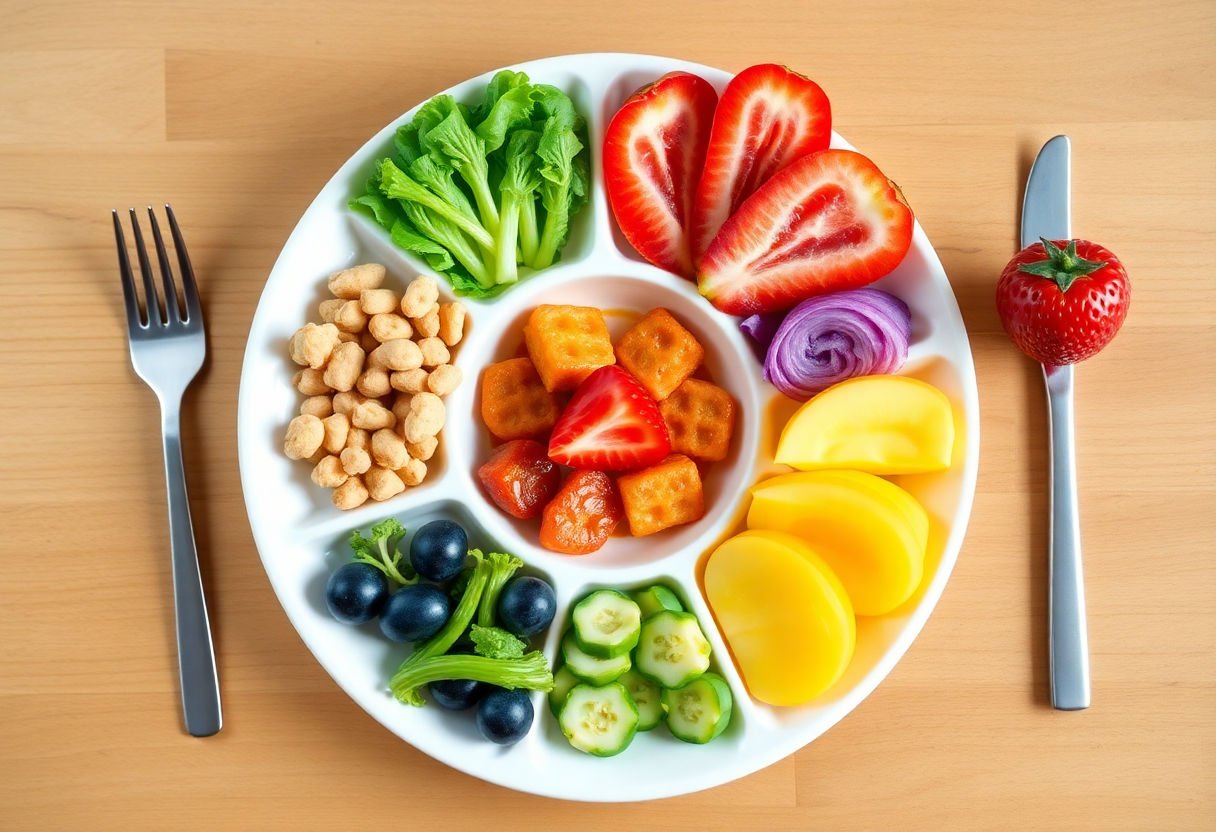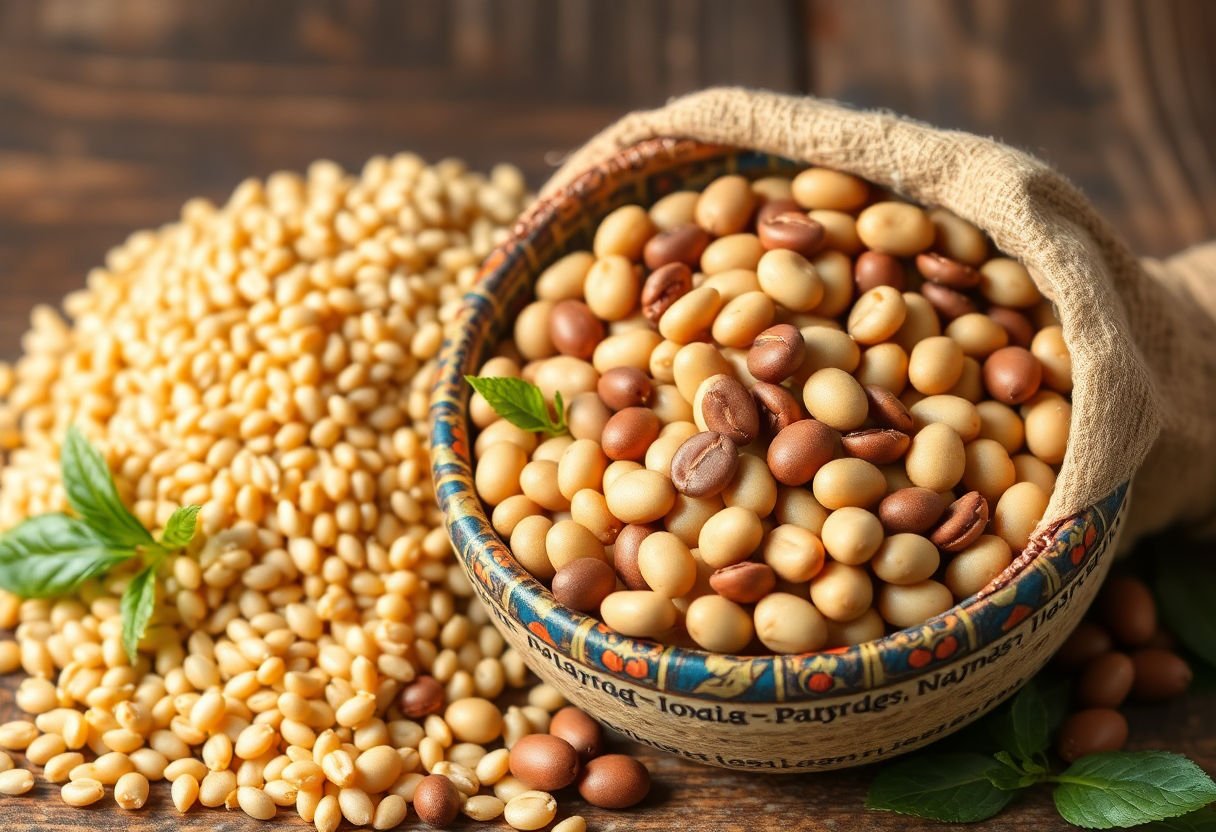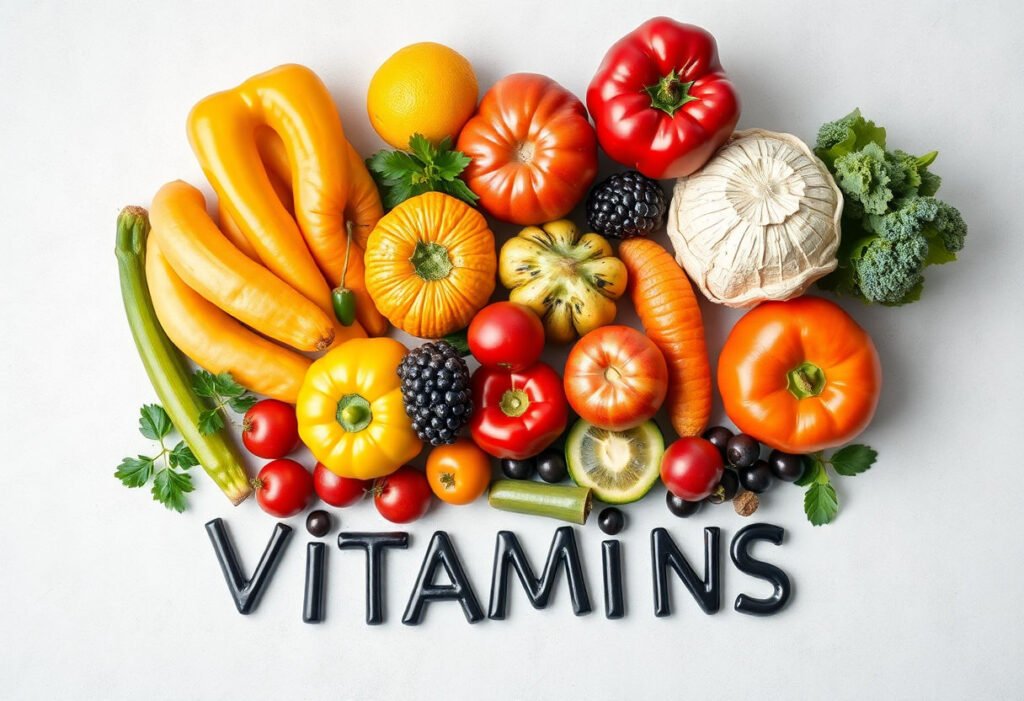Vitamins are fundamental to children’s health, playing an integral role in stimulating a healthy appetite. Throughout this article, we delve into a variety of essential vitamins, such as the Vitamin B Complex, Vitamin D, zinc, and magnesium, which are pivotal in naturally enhancing your child’s appetite. By understanding their benefits and learning practical ways to incorporate them into your child’s meals, you can support their development and well-being. With a focus on natural dietary sources and appropriate supplements, you’ll discover how to ensure your child receives the necessary nutrients for optimal health.
Key Takeaways
- Vitamins play an essential role in stimulating children’s appetite and supporting their overall health.
- Incorporating Vitamin B Complex is crucial for enhancing a child’s appetite and is found in foods like eggs, meat, and dairy.
- Vitamin D is important not only for bone health but also in regulating appetite naturally.
- Zinc and magnesium are vital minerals that contribute to increasing a child’s appetite and can be sourced from a balanced diet.
- Combining vitamins and minerals effectively can have a synergistic effect, promoting better appetite and general well-being.
Understanding Appetite and Nutrition in Children

In children, understanding the delicate balance between appetite and nutrition is pivotal for their growth and development. Appetite often fluctuates due to various factors, including age, activity level, and health status. Recognizing these fluctuations helps parents ensure their children receive adequate nutrition vital for their well-being.
Nutrition needs in children differ significantly from those of adults, necessitating a focused approach to dietary planning. A child’s appetite is often a reflection of their body’s nutritional demands. When a child lacks in key vitamins and minerals, it might manifest as reduced appetite, leading to potential nutrient deficiencies. Therefore, ensuring a rich intake of necessary nutrients is crucial not just for appetite stimulation but also for overall health maintenance.
Vitamins and minerals play a significant role here. For instance, a child deficient in certain B vitamins might experience lower energy levels and reduced appetite. Similarly, scarcity in minerals like zinc might impair the appetite regulation mechanisms in young ones. Regularly incorporating these nutrients can help stabilize and potentially enhance a child’s appetite, promoting better food intake.
Moreover, the relationship between growth spurts and increased appetite should not be overlooked. During these periods, children’s body’s demand for nutrients surges, necessitating a well-rounded diet that supports their accelerated growth. Attention to this interrelationship aids parents in crafting a balanced diet ensuring their children not only meet but surpass their nutritional requirements, paving the path for robust health and growth.
Vitamin B Complex: Key to a Healthy Appetite

The Vitamin B Complex plays a pivotal role in enhancing a child’s appetite. This group of water-soluble vitamins, encompassing B1 (Thiamine), B2 (Riboflavin), B3 (Niacin), B5 (Pantothenic Acid), B6 (Pyridoxine), B7 (Biotin), B9 (Folate), and B12 (Cobalamin), is essential in numerous bodily functions, including energy production and the formation of red blood cells.
A child’s appetite can be significantly influenced by their energy levels, which are directly tied to how their body metabolizes food. Vitamin B1, for example, is crucial for converting carbohydrates into energy, thereby encouraging a healthy appetite. Similarly, Vitamin B6 assists in the synthesis of neurotransmitters like serotonin, which can impact mood and appetite regulation.
To naturally incorporate these vital nutrients into your child’s diet, focus on a wide variety of foods. Whole grains, such as oats and brown rice, are excellent sources of several B vitamins. Leafy greens, dairy products, and lean meats like chicken and fish can provide varying types and amounts of B vitamins. Eggs are another versatile food item rich in B7. Ensuring a balanced intake of these foods can aid in nurturing an appetite naturally.
For those with dietary restrictions or picky eaters, fortified cereals and nutritional yeast can serve as alternative sources of these essential vitamins. However, it is always advisable for parents to consult with a healthcare provider before introducing any supplements to ensure they meet their child’s specific dietary needs.
The Role of Vitamin D in Children’s Health

Vitamin D, often referred to as the “sunshine vitamin,” is crucial for a child’s health, playing a significant role beyond its well-known benefit to bone growth. It is instrumental in regulating appetite and ensuring a robust immune system. Research indicates that adequate vitamin D levels can positively influence a child’s desire to eat, which is essential for growth and development.
Children typically obtain vitamin D through exposure to sunlight; however, factors such as living in northern latitudes, excessive sunscreen use, and limited outdoor activities can impede their ability to synthesize sufficient amounts of this vital nutrient. Moreover, vitamin D is not abundant in many foods, necessitating a careful dietary strategy or supplementation to reach adequate levels.
To ensure your child receives enough vitamin D, consider integrating the following into their diet:
- Fatty fish such as salmon and tuna, which are among the best natural sources.
- Fortified foods, including milk, orange juice, and cereals, which are often fortified with vitamin D to aid in reaching daily requirements.
- Egg yolks, which contain modest amounts of vitamin D and are easy to include in various meals.
Regular check-ups with healthcare providers can determine if your child requires vitamin D supplements, especially during winter months or in cases of low dietary intake. By maintaining adequate levels of this essential vitamin, you can support your child’s appetite and overall well-being.
Integrating Zinc for Appetite Enhancement
Zinc plays a pivotal role in enhancing appetite, often earning the title of an appetite stimulant due to its profound impact on metabolism. This essential mineral is involved in numerous enzymatic processes that support the body’s ability to efficiently metabolize proteins, carbohydrates, and fats, which in turn, can facilitate appetite stimulation.
A deficiency in zinc is often associated with reduced appetite and slowed growth in children, emphasizing its importance. By incorporating adequate zinc into your child’s diet, you can help ensure that their appetite and overall health are adequately supported.
Dietary Sources of Zinc
To incorporate zinc into your child’s daily meals, consider these natural food sources:
- Red Meat and Poultry: These are among the most potent sources of zinc, providing bioavailable zinc that is readily absorbed by the body.
- Seafood: Particularly shellfish like oysters and crabs are rich in zinc.
- Legumes and Nuts: Lentils, chickpeas, and beans, as well as nuts like almonds and cashews, contain significant amounts of zinc.
- Dairy Products: Yogurt and cheese offer zinc, along with other essential nutrients.
- Whole Grains: Incorporating whole grains such as oats and quinoa can also boost zinc intake.
Including a balanced variety of these foods in your child’s diet can naturally enhance their appetite. For picky eaters, creative approaches such as adding nuts to smoothies or incorporating legumes into familiar dishes can be effective. Monitoring zinc intake is crucial for maintaining a steady and healthy appetite, paving the way for better growth and development in children.
Improving Appetite with Magnesium
Magnesium plays an often understated yet crucial role in supporting a child’s appetite. This essential mineral participates in numerous biochemical reactions vital for energy production and the function of muscles and nerves. In children’s health, magnesium facilitates enzyme activity necessary for metabolic processes, which can indirectly influence appetite regulation.
Adequate Magnesium Intake: Ensuring your child gets enough magnesium can help boost their appetite naturally. Children aged 4-8 years require approximately 130 mg per day, while those aged 9-13 need about 240 mg daily. These levels support not only growth and development but also maintain the delicate balance in their overall well-being.
A deficiency in magnesium might lead to symptoms like fatigue, irritability, and poor appetite, signifying how integral it is for children’s nutritional health. Parents should monitor these signs closely and consult healthcare professionals if necessary.
Natural Magnesium Sources: To naturally incorporate magnesium into your child’s diet, focus on nutrient-rich foods:
- Whole grains such as brown rice and whole-wheat bread
- Leafy green vegetables like spinach and kale
- Nuts and seeds, particularly almonds and sunflower seeds
- Legumes, including lentils, chickpeas, and black beans
Including such foods in daily meals not only supports a healthy appetite but also contributes to the overall nutritional profile essential for a growing child. By emphasizing magnesium-rich foods, parents can aid in fostering a balanced diet that promotes growth and a robust appetite naturally.
Combining Vitamins and Minerals Effectively

Combining vitamins and minerals is a strategic approach to enhancing your child’s appetite and overall health. Vitamins and minerals often work better together, creating a synergistic effect that can amplify their individual benefits.
Enhancing Absorption and Functionality
-
Vitamin D and Calcium: These nutrients are well-known partners. Vitamin D is crucial for the efficient absorption of calcium, which is vital for bone health. Ensuring your child receives adequate amounts of both can support bone growth and regulate appetite.
-
Vitamin C and Iron: Vitamin C significantly enhances the absorption of iron, a mineral essential for preventing anemia and maintaining energy levels. By pairing foods rich in vitamin C, like oranges, with iron-rich foods like spinach, you can improve their overall nutrition.
Balancing Key Nutrients
-
B Vitamins and Magnesium: B vitamins, particularly B6, assist in converting food into energy, while magnesium is involved in over 300 enzyme reactions, including those that convert food to energy. Combining these can boost energy levels and, consequently, appetite.
-
Zinc and Vitamin B6: Zinc plays a role in taste and smell, which can influence appetite, while Vitamin B6 supports protein metabolism. Together, they can effectively stimulate a child’s interest in food.
Practical Tips for Parents
- Include a variety of foods in your child’s diet to naturally balance these nutrients.
- Aim for meals that incorporate multiple vitamins and minerals. For example, a breakfast with fortified cereal (B vitamins) and milk (calcium and vitamin D) can set a strong nutritional foundation.
By understanding how to combine these nutrients effectively, parents can ensure their children receive the full spectrum of benefits these essential vitamins and minerals offer.
Natural Dietary Sources and Supplements

To ensure that your child’s diet naturally supports appetite enhancement, it’s vital to incorporate foods that are rich in essential vitamins and minerals. Vitamin B Complex, for instance, can be found in whole grains, meat, eggs, dairy products, legumes, seeds, and nuts. Including these foods in regular meals can provide a natural boost to your child’s appetite by aiding in energy metabolism and nerve function.
Vitamin D, essential for both bone health and appetite regulation, can be sourced from fatty fish such as salmon and mackerel, fortified milk, and eggs. Exposure to sunlight is also crucial for natural vitamin D synthesis in the skin.
Zinc, important for metabolism and immune function, can be found in foods like red meat, poultry, shellfish, legumes, and whole grains. These sources can be easily included in family meals to ensure adequate zinc intake.
Magnesium, which plays a role in enzymatic reactions including those related to hunger cues, is abundant in dark leafy greens, nuts, seeds, fish, and whole grains.
While natural sources should be prioritized, dietary supplements can be considered if there are dietary restrictions, allergies, or nutritional gaps. It’s important to consult a healthcare professional before introducing any supplements to your child’s regimen to ensure appropriate dosage and avoid unnecessary supplementation.
These dietary strategies, combining diverse and natural food sources, provide a comprehensive approach to enhancing your child’s appetite while ensuring balanced nutrition.
Conclusion
Supporting your child’s appetite through essential vitamins like Vitamin B, Vitamin D, zinc, and magnesium is crucial for their overall health and well-being. By integrating these nutrients into their daily diet, parents can promote healthier eating habits naturally. This approach not only boosts appetite but also contributes to improved metabolism and growth. As we continue to understand the intricate relationship between nutrition and health, incorporating these vitamins regularly offers a promising foundation for nurturing a balanced and nutrient-rich diet for children. Encouragement and patience are vital in adopting these changes for sustained health benefits.
Frequently Asked Questions
Are vitamins alone enough to boost my child’s appetite?
Vitamins can play a significant role in enhancing appetite, but they are most effective when combined with a balanced diet and healthy lifestyle. It’s crucial to ensure your child gets a variety of nutrients along with appropriate levels of physical activity.
How can I ensure my child gets enough of these essential vitamins naturally?
Incorporating a variety of fruits, vegetables, whole grains, lean proteins, and dairy into meals can provide the necessary vitamins. Foods rich in Vitamin B, D, zinc, and magnesium, such as leafy greens, fish, nuts, and dairy, should be included in their diet.
Can vitamin supplements be a safe alternative if my child is a picky eater?
While vitamin supplements can help fill nutritional gaps, it is best to consult with a pediatrician to ensure they are necessary and safe for your child. Whole foods remain the preferred method for nutrient intake.
How long does it typically take to see improvements in my child’s appetite with vitamins?
The time it takes to notice changes can vary based on the child’s current dietary habits and specific needs. Generally, improvements may become apparent within a few weeks of consistently meeting their vitamin requirements.
Are there any risks associated with giving my child too many vitamins?
Yes, overconsumption of certain vitamins can lead to negative health effects. For instance, fat-soluble vitamins like Vitamin D can accumulate in the body and cause toxicity. It is essential to adhere to recommended dietary allowances and seek professional guidance.


